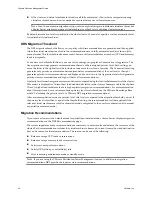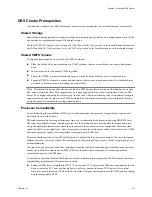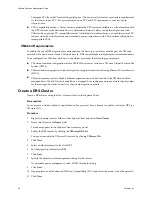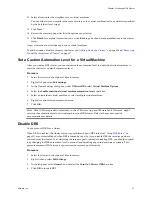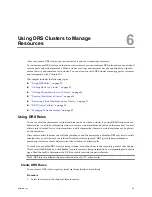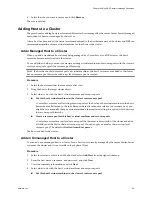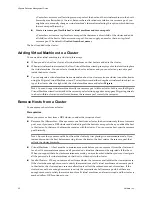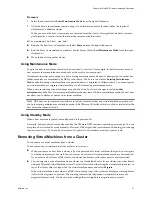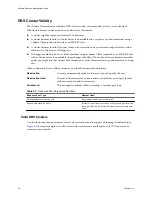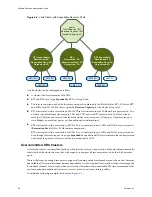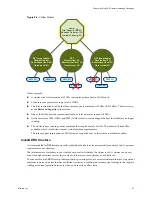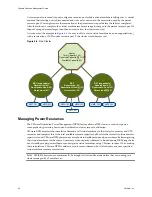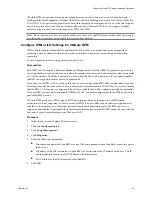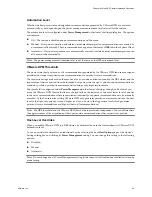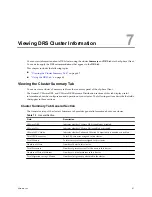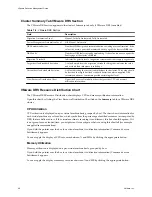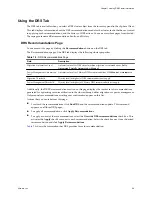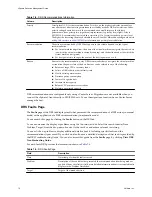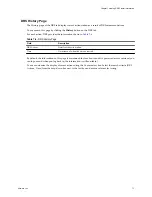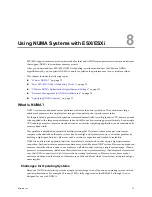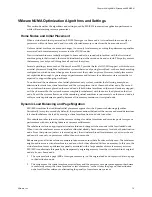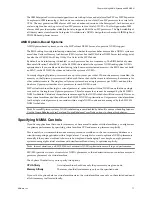
A cluster can also turn red if you reconfigure a resource pool while a virtual machine is failing over. A virtual
machine that is failing over is disconnected and does not count toward the reservation used by the parent
resource pool. You might reduce the reservation of the parent resource pool before the failover completes.
After the failover is complete, the virtual machine resources are again charged to the parent resource pool. If
the pool’s usage becomes larger than the new reservation, the cluster turns red.
As is shown in the example in
Figure 6-4
, if a user is able to start a virtual machine (in an unsupported way)
with a reservation of 3GHz under resource pool 2, the cluster would become red.
Figure 6-4.
Red Cluster
cluster
Total Capacity: 12G
Reserved Capacity: 12G 15G
Available Capacity: 0G
RP1 (expandable)
Reservation: 4G
Reservation Used: 4G
Unreserved: 0G
RP2
Reservation: 2G
Reservation Used:
2G
5G
Unreserved: 0G
RP3 (expandable)
Reservation: 6G
Reservation Used: 2G
Unreserved:
4G
0G
VM1, 1G
VM7, 3G
VM2, 3G
VM3, 1G
VM4, 1G
VM5, 1G
VM6, 1G
Managing Power Resources
The VMware Distributed Power Management (DPM) feature allows a DRS cluster to reduce its power
consumption by powering hosts on and off based on cluster resource utilization.
VMware DPM monitors the cumulative demand of all virtual machines in the cluster for memory and CPU
resources and compares this to the total available resource capacity of all hosts in the cluster. If sufficient excess
capacity is found, VMware DPM places one or more hosts in standby mode and powers them off after migrating
their virtual machines to other hosts. Conversely, when capacity is deemed to be inadequate, DRS brings hosts
out of standby mode (powers them on) and migrates virtual machines, using VMotion, to them. When making
these calculations, VMware DPM considers not only current demand, but it also honors any user-specified
virtual machine resource reservations.
N
OTE
ESX/ESXi hosts cannot automatically be brought out of standby mode unless they are running in a
cluster managed by vCenter Server.
vSphere Resource Management Guide
62
VMware, Inc.
Summary of Contents for ESX 4.0
Page 6: ...vSphere Resource Management Guide 6 VMware Inc...
Page 44: ...vSphere Resource Management Guide 44 VMware Inc...
Page 52: ...vSphere Resource Management Guide 52 VMware Inc...
Page 72: ...vSphere Resource Management Guide 72 VMware Inc...
Page 80: ...vSphere Resource Management Guide 80 VMware Inc...

